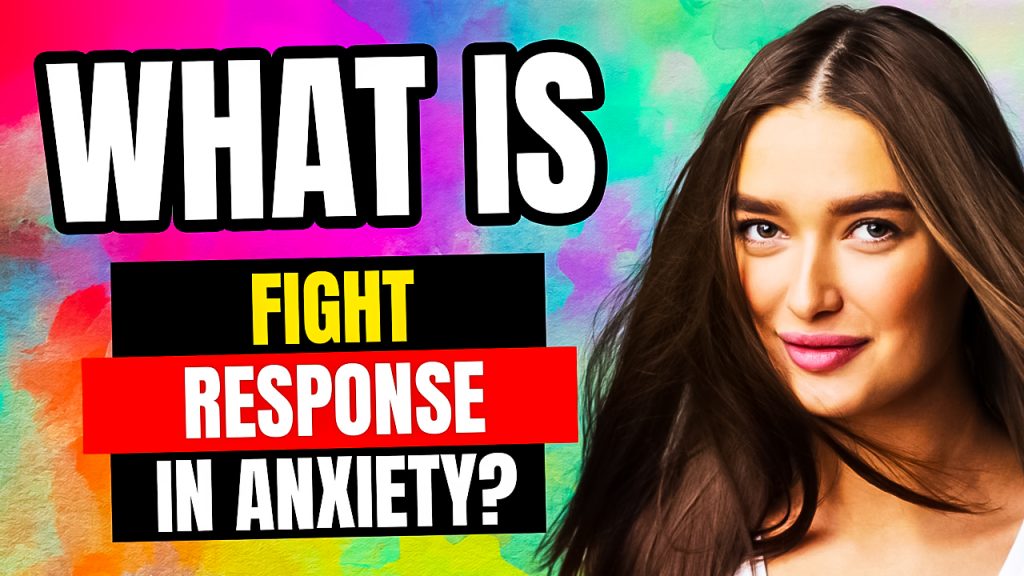
Anxiety is a natural response to a perceived threat, danger or stressor, which can be triggered by various situations, such as exams, public speaking, or encountering a potentially dangerous situation. In response to anxiety, the body activates the “fight or flight” response, which prepares the individual to either confront the danger or flee from it. However, in addition to the classic “fight or flight” response, there is also a third response known as the “fight response” that is often seen in people with anxiety.
The “fight response” is characterized by an intense urge to confront the source of anxiety or danger, rather than run away or avoid it. This response is often seen in individuals who have a history of trauma or have been exposed to a threatening or dangerous environment. For these individuals, their nervous system is highly activated, and their survival instincts kick in, leading them to respond aggressively to perceived threats.
When a person experiences the fight response, they may feel a range of physical and emotional symptoms. Physically, they may experience an increase in heart rate, rapid breathing, sweating, and muscle tension. They may also experience a heightened sense of alertness and an intense feeling of readiness to confront the source of their anxiety. Emotionally, they may experience a range of feelings such as anger, frustration, and fear.
The fight response can be triggered by a variety of situations. For example, a person with social anxiety may feel the urge to confront a person who they perceive as a threat, such as someone who is looking at them strangely. A person with generalized anxiety disorder may feel the urge to confront a source of uncertainty or unpredictability, such as a loud noise or a crowded place.
While the fight response can be helpful in some situations, it can also be harmful in others. In some cases, the person may become overly aggressive, leading to physical or verbal confrontation. This can result in negative consequences, such as legal issues or damaged relationships.
Additionally, the fight response can lead to increased anxiety, as the individual becomes trapped in a cycle of heightened arousal and reactivity. This can lead to a sense of feeling constantly on edge, as the person struggles to control their responses and cope with their feelings of anxiety.
Fortunately, there are several strategies that can be used to manage the fight response and reduce feelings of anxiety. One of the most effective strategies is to practice mindfulness, which involves focusing on the present moment and accepting one’s feelings without judgment. This can help to reduce feelings of anxiety and increase self-awareness, allowing the person to recognize when the fight response is being triggered.
Another effective strategy is cognitive-behavioral therapy (CBT), which involves identifying and changing negative thought patterns and behaviors that contribute to anxiety. This can help the person to develop more adaptive coping strategies and reduce their overall levels of anxiety.
Finally, relaxation techniques such as deep breathing, progressive muscle relaxation, and yoga can also be helpful in reducing the fight response and promoting feelings of relaxation and calmness.
In conclusion, the fight response is a common response to anxiety, particularly in individuals who have experienced trauma or have been exposed to threatening or dangerous situations. While this response can be helpful in some situations, it can also be harmful and lead to increased anxiety. Fortunately, there are several strategies that can be used to manage the fight response and reduce feelings of anxiety, including mindfulness, cognitive-behavioral therapy, and relaxation techniques. By utilizing these strategies, individuals can learn to manage their anxiety and live a more fulfilling life.
This Post is Brought To You By BetterHelp